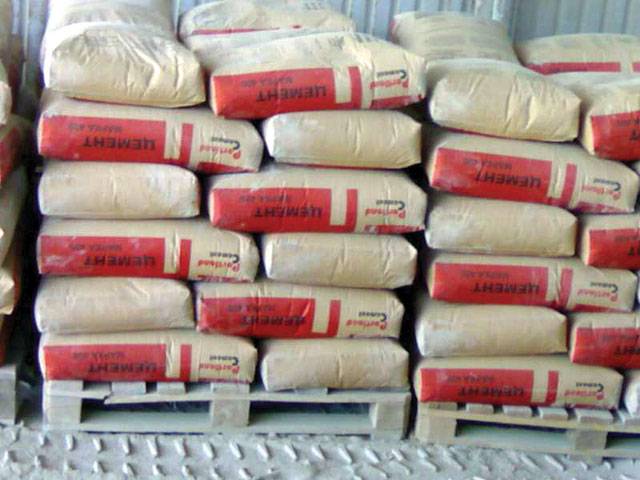LAHORE - Highly depressed with the non-tariff barriers by the Indian side, the cement manufacturers have reduced export price for India with a view to enhance supply volumes to earn foreign exchange.
Industry sources said this step of reducing margins by the manufacturers will help capture the Indian export market, which has lot of potential despite many hurdles particularly transportation and Bureau of Indian Standards (BIS) certification.
They said that due to deprecation of Pak rupee, the Pakistani cement manufacturers have some cushion to reduce the commodity price by $9 per ton or 13 per cent, slashing their own profit just to fetch more foreign exchange by enhancing sale abroad. With current decline, cement is now being exported to India at an average price of $60 per ton as compared to $69 previously, they added. This will help maintain export growth to the neighbouring country, which is also a major importing country of Pakistani cement.
Although, cement export to India registered a growth of some 3 per cent to 605,543 tons during FY12 compared to export of 590,102 tons in FY11, cement sector is still not satisfied with the current growth of export to India, saying that export can cross one million tons, if the hurdles are removed.
They said the quality of Pakistani cement is much better than Indian cement. Pakistani cement consumption is some 5 to 10 percent less than Indian cement, hence imported cement from Pakistan is cheaper for India.
They said the government has announced to grant phase-wise free access to Indian traders in its markets as Most Favored Nation (MFN). However, the BIS is not visiting Pakistan to issue export licenses to Pakistani cement manufacturers.
Presently, some four Pakistani cement companies are waiting for Indian inspection to get license and start cement export to India. However, BIS officials are reluctant to visit Pakistan citing security threats.
They said that Pakistan can export over one million tons of cement to Indian if BIS certification is allowed for 5 years and two trains’ interchanges per day, besides development of another road network for transshipment at Wahgah border.
They said Pakistani cement plants are facing several problems particularly logistics and BIS certification condition regarding cement export to Indian. Presently, huge quantity of cement being exported via land route is by train and trucks. However, trains have limited capacity and additionally the train movement between the two countries is governed by another treaty, which is operating limited number of interchanges of train. In addition, recently, export through trucks has been initiated, which is still limited and not viable for all companies due to labour shortage.
Export by sea is another option, but the plants located in the northern part of Pakistan (where the bulk of the capacity is produced) cannot export cement by sea due to high inland freight, they added.
Friday, April 19, 2024
Cement makers reduce export price for India

US vetoes Palestine’s bid for full UN membership
8:27 AM | April 19, 2024
20pc Discos employees involved in power theft: Minister
April 19, 2024
Five govt officials shot dead in D I Khan
April 19, 2024
Parvez Elahi’s indictment delayed again in two cases
April 19, 2024
Hepatitis Challenge
April 18, 2024
IMF Predictions
April 18, 2024
Wheat War
April 18, 2024
Rail Revival
April 17, 2024
Addressing Climate Change
April 17, 2024
Justice denied
April 18, 2024
AI dilemmas unveiled
April 18, 2024
Tax tangle
April 18, 2024
Workforce inequality
April 17, 2024
New partnerships
April 17, 2024
ePaper - Nawaiwaqt
Advertisement
Nawaiwaqt Group | Copyright © 2024





